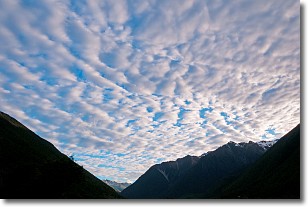Weather Alert in Alaska
Fire Weather Watch issued June 30 at 12:46PM AKDT until July 2 at 10:00PM AKDT by NWS Fairbanks AK
AREAS AFFECTED: Upper Koyukuk Valley; Tanana Flats; Goldstream Valley and Nenana Hills; Fairbanks Metro Area; Nenana; Central Interior; Northern Denali Borough; Eastern Alaska Range North of Trims Camp
DESCRIPTION: The National Weather Service in Fairbanks has issued a Fire Weather Watch, which is in effect from Wednesday morning through Wednesday evening. * AFFECTED AREA...Upper Koyukuk Valley, Tanana Flats, Goldstream Valley and Nenana Hills, Fairbanks Metro Area, Nenana, Central Interior, Northern Denali Borough and Eastern Alaska Range North of Trims Camp. * TIMING...From Wednesday morning through Wednesday evening. * WINDS...East-Northeast 10 to 20 mph with gusts up to 30 mph. * HUMIDITY...As low as 20 percent. * TEMPERATURES...Highs in the upper 80s. * IMPACTS...Rapid ignition, growth and spread of fires will be possible. Hot, dry, and windy conditions may lead to rapid spread of fires.
INSTRUCTION: A Fire Weather Watch means that weather conditions could lead to the potential for a Red Flag event in the near future. This watch will remain in effect until it is upgraded to a Red Flag Warning or that it is determined that the Red Flag event will not develop. Please advise the appropriate officials or fire crews in the field of this Fire Weather Watch.
Want more detail? Get the Complete 7 Day and Night Detailed Forecast!
Current U.S. National Radar--Current
The Current National Weather Radar is shown below with a UTC Time (subtract 5 hours from UTC to get Eastern Time).

National Weather Forecast--Current
The Current National Weather Forecast and National Weather Map are shown below.

National Weather Forecast for Tomorrow
Tomorrow National Weather Forecast and Tomorrow National Weather Map are show below.

North America Water Vapor (Moisture)
This map shows recent moisture content over North America. Bright and colored areas show high moisture (ie, clouds); brown indicates very little moisture present; black indicates no moisture.

Weather Topic: What is Snow?
Home - Education - Precipitation - Snow
 Next Topic: Stratocumulus Clouds
Next Topic: Stratocumulus Clouds
Snow is precipitation taking the form of ice crystals. Each ice crystal, or snowflake,
has unique characteristics, but all of them grow in a hexagonal structure.
Snowfall can last for sustained periods of time and result in significant buildup
of snow on the ground.
On the earth's surface, snow starts out light and powdery, but as it begins to melt
it tends to become more granular, producing small bits of ice which have the consistency of
sand. After several cycles of melting and freezing, snow can become very dense
and ice-like, commonly known as snow pack.
Next Topic: Stratocumulus Clouds
Weather Topic: What are Stratus Clouds?
Home - Education - Cloud Types - Stratus Clouds
 Next Topic: Wall Clouds
Next Topic: Wall Clouds
Stratus clouds are similar to altostratus clouds, but form at a
lower altitude and are identified by their fog-like appearance, lacking the
distinguishing features of most clouds.
Stratus clouds are wider than most clouds, and their base has a smooth, uniform
look which is lighter in color than a nimbostratus cloud.
The presence of a stratus cloud indicates the possibility of minor precipitation,
such as drizzle, but heavier precipitation does not typically arrive in the form
of a stratus cloud.
Next Topic: Wall Clouds
Current conditions powered by WeatherAPI.com




